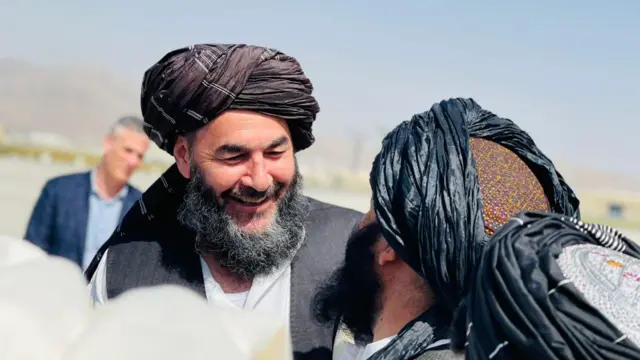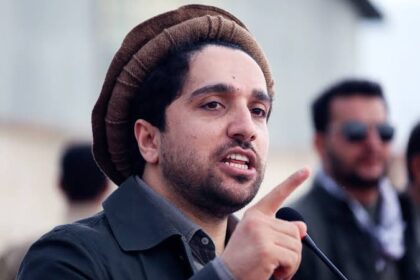RASC News Agency: A damning new exposé by the British daily New World has unveiled the resurgent dominance of Bashar Noorzai, the notorious Afghanistani narcotics kingpin long regarded as one of the Taliban’s closest patrons. Once arrested by U.S. forces following the Taliban’s fall in 2001 and held for years in the infamous Guantánamo Bay prison, Noorzai has re-emerged not as a weakened figure, but as a central pillar of Taliban finance and organized crime. He has expanded his heroin and methamphetamine empire and simultaneously entrenched himself as a powerbroker in the looting of Afghanistan’s mineral wealth. Afghanistan’s natural resources valued between one and three trillion U.S. dollars have increasingly become the private dominion of Noorzai and his mafia-like networks. According to New World, Noorzai has fashioned himself as the gatekeeper of Afghanistan’s rare earths and strategic minerals, securing deep ties with China, Iran, and Pakistan. These links have positioned him not merely as a businessman but as the Taliban’s principal broker with regional powers, granting him unparalleled leverage over the regime’s financial arteries.
The investigation notes that Noorzai, widely branded both a narcotics godfather and the Taliban’s financial enforcer, now claims as much as 18 percent of all revenues from mining contracts. Such a staggering share exposes the extent to which Taliban governance has collapsed into a cartel economy where policy is dictated not by public interest but by the profit margins of a criminal elite. His presence beside Taliban leader Hibatullah Akhundzada is a stark reminder that in today’s Afghanistan, the Taliban’s highest councils are indistinguishable from a mafia boardroom. This reality unfolds as Washington has again turned its gaze toward Afghanistan’s mineral reserves. Sources reveal that officials in the Trump administration are seeking to open talks with the Taliban but are quietly pressing the condition that the group loosen its economic dependency on Beijing. Yet, as New World observes, such demands border on the impossible: Noorzai has welded the Taliban’s economy to regional powers, making him the indispensable hinge of Afghanistan’s resource exploitation.
Western analysts warn that Noorzai’s resurgence has transformed him into a central node where the interests of criminal cartels, authoritarian regimes, and Taliban militants converge. His trajectory from drug trafficker of the 1990s, when he bankrolled the Taliban’s first rise, to today’s mining magnate explains why many officials now dub him the “Godfather of the Taliban.” The title reflects not only his personal wealth and reach but also the Taliban’s transformation into a regime inseparably fused with narcotics and extractive mafias. For ordinary Afghanistani citizens, this grim nexus of drugs, mines, and militants is catastrophic. Afghanistan’s natural wealth, which could have funded schools, hospitals, and jobs, is instead siphoned into the coffers of traffickers and Taliban commanders. Villagers see mountains scarred by unregulated extraction, rivers polluted by chemicals, and communities forced into labor, while revenues vanish into private vaults. What should have been the backbone of national prosperity has become the bloodstream of Taliban corruption.
The international implications are equally alarming. Afghanistan is no longer simply ruled by an insurgent movement but by a criminalized state in which organized crime dictates national policy. China, Pakistan, and Iran exploit this reality for strategic gain, while Western powers are forced to confront a regime that thrives on drugs and minerals rather than governance or legitimacy. The result is a geopolitical tinderbox: a Taliban regime hollowed out by mafia interests, a society suffocating under poverty, and a population robbed of both its resources and its future. The return of Bashar Noorzai is not the story of a man, but of a system the Taliban’s descent into a mafia-state where death, drugs, and plunder eclipse every promise of governance. With Afghanistan’s minerals and narcotics now intertwined under his watch, the country’s fate remains shackled to a regime that has traded legitimacy for loot, and sovereignty for smuggling routes.






